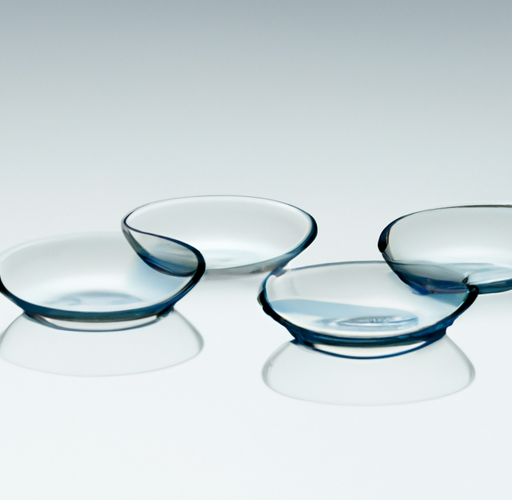Is it time to ditch your soft contact lenses? Let’s explore the pros and cons of Rigid Gas Permeable (RGP) Contact Lenses!
The Pros:
Are you ready to take your contact lens journey to the next level? RGP contact lenses might just be the answer you’ve been searching for. Let’s dive into the pros:
1. Crisp Vision
One of the biggest advantages of RGP lenses is their ability to provide incredibly sharp and clear vision. Say goodbye to blurry edges and hello to a world of definition! You’ll be amazed at how much better things look.
2. Long-lasting Durability
These little wonders are more durable than their soft lens counterparts. They maintain their shape and do not tear easily, making them ideal for active individuals or anyone who tends to be a bit clumsy (we won’t tell!). No more panic if you drop your lenses or accidentally nap in them!
3. Better Eye Health
The breathability of RGP lenses allows more oxygen to reach your corneas, reducing the risk of eye infections or discomfort. Plus, their rigid material helps to prevent the buildup of proteins and debris that can occur with soft lenses. It’s a win-win for both your eyes and overall eye health!
4. Fewer Lens Replacements
Unlike soft lenses, RGP lenses have a longer lifespan. With proper care and cleaning, you can enjoy using the same pair for up to a year! That means fewer trips to the optometrist and more money in your pocket. Cha-ching!
The Cons:
Now, let’s not overlook a few of the cons that come with RGP lenses. Don’t worry, we’ve got your back – just stay aware of these points:
1. Adjustment Period
Transitioning from soft lenses to RGPs can require a little patience. Your eyes will need some time to adapt to the new sensations, and you may experience initial discomfort or extra blink-fests. But fear not, it’s temporary and totally worth it in the long run!
2. Sensitivity to Dust and Debris
RGP lenses tend to be less forgiving than soft lenses when it comes to dust, debris, and other tiny irritants. Though they are easier to clean, it’s crucial to keep them dirt-free to avoid discomfort or even eye infections. Just channel your inner cleanliness guru!
3. Higher Cost
Okay, let’s talk moolah. RGP lenses can be a bit pricier upfront than their soft lens pals. However, remember the longer lifespan we mentioned earlier? Over time, the cost can even out, so don’t let this deter you from trying them out. Your eyes deserve the best!
4. May Slip Occasionally
Due to their rigid nature, RGP lenses have a greater chance of shifting slightly out of position on your eye. But fear not, a little adjustment (pun intended) or a gentle blink usually does the trick. After all, a slight inconvenience for the sake of amazing vision seems like a fair trade, right?
Fun Fact: Did you know that some RGPs can even be customized to correct astigmatism? That’s right, they’re like personalized vision superheroes! Pow!
RGP lenses, or rigid gas permeable lenses, have a number of advantages and disadvantages compared to soft lenses. Some of these pros and cons include:
Pros:
1. Longer Lifespan: RGP lenses have a longer lifespan compared to soft lenses. With proper care and cleaning, they can be used for up to a year, reducing the need for frequent replacements.
2. Cost Savings: Because RGP lenses last longer, there is less need for frequent visits to the optometrist and less money spent on purchasing new lenses. This can result in cost savings over time.
Cons:
1. Adjustment Period: Transitioning from soft lenses to RGP lenses can require a period of adjustment. The eyes need time to adapt to the new sensations, and there may be initial discomfort or excessive blinking. However, this is temporary and should improve with time.
2. Sensitivity to Dust and Debris: RGP lenses are less forgiving than soft lenses when it comes to dust, debris, and other irritants. It is important to keep them clean and free from dirt to avoid discomfort and potential eye infections.
3. Higher Cost: RGP lenses may have a higher upfront cost compared to soft lenses. However, considering their longer lifespan, the cost can even out over time.
4. Occasional Slippage: Due to their rigid nature, RGP lenses may have a higher chance of shifting slightly out of position on the eye. This can be easily addressed with a gentle adjustment or blink.
In addition to these pros and cons, it is worth noting that some RGP lenses can be customized to correct astigmatism, making them a versatile option for individuals with specific vision needs.

